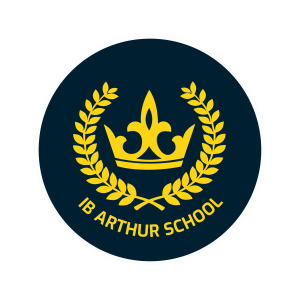Curriculum
The Lower Primary School is for 5 – 8 year olds (i.e. Year 1 to Year 3). IB Arthur School is authorised for Cambridge Primary Education. The Cambridge curriculum is recognised globally and it provides connectivity from kindergarten to primary. The curriculum also promotes experiential and inquiry-based activities and provides learners with the academic skills needed to become independent learners. Using the Cambridge curriculum allows for continuous assessments to monitor child development.
LPS learners are assessed through homework, class test and end-of-term assessment. Teachers meet with parents to review learners’ progress twice in a term (i.e., mid-term and end of the school term).
The maximum class size is 18. We believe that keeping classes small allows our teachers to truly understand how each student learns best. Small class sizes allow us to get to know all of our families well and develop close partnerships between school and home.
The LPS teaches the following subjects:
English Literacy
English classes build a solid foundation in the important areas of Reading, Writing, Speaking and Listening. Using our internationally recognized phonics programme, we provide our students with a systematic and logical English improvement programme. Language Art builds a foundation for learning English through presentations and discussions for a deeper understanding of language, vocabulary development, Show and Tell, and other subjects.
Mathematics
Math classes challenge learners with hands-on activities and real-world problem-solving. Learners develop strategies for finding answers to problems through engaging and intuitive lessons that connect math concepts.
Science
The curriculum covers all fundamental disciplines, including biology, chemistry and physics. At IB Arthur School, we take the scientific process very seriously and encourage our learners to develop the habit of being logical, experimenting and studying.
Arts and Design
Using various forms of media, students develop self-expression and imagination through science, social, and seasonal crafts and activities.
Programming and Robotics
Robotic and programming lessons provide the basis for project-based learning to research and engineer solutions to real-world problems. The programme is tied to other subjects being explored at the same time.
Digital Literacy
Students develop their keyboarding skills and learn how to operate computer functions. These classroom activities are tied to real-world concepts so students can advance their proficiency to higher grades. We encourage parents to acquire laptops for their learners. So that they can practise at home. We also encourage parents to manage their learners’ screen time.
Physical Education and Sports (PES)
Professional instructors are in charge of PE and Sports classes. PE covers a wide range of topics such as balance, body awareness, movement, body coordination, freerunning and tumbling. The Sports discipline includes football and ping pong.
Music
In an activity-based, play-based, holistic musical activity, a professional music teacher teaches learners the knowledge and skills of beats and tempos, loud and soft sounds, high and low ranges, and the origins and timbres of music.
Social and Civic Education
Students begin by learning about themselves, expanding their horizons to see the world around them, and learning the fundamental skills they need to learn more about these topics in the future.
